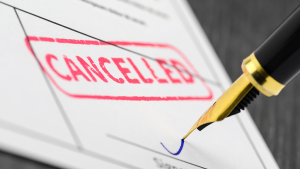Construction leaders believe B.C.’s move to decriminalize drug possession could greatly reduce the stigma and shame that prevents many of the sector’s workers from getting help.
Earlier this month the federal government announced it would grant a three-year exemption under the Controlled Drugs and Substances Act to remove criminal penalties for people who possess a small amount of certain illicit substances for personal use.
Trevor Botkin, general manager for construction charity HeroWork Victoria, has publicly shared his challenges with substance use while working as a carpenter. He believes the policy change could help many others who are looking to stop or better manage their use.
“Having the province stand up and lead the way in acknowledging that these are indeed serious health, and mental health challenges that need to be treated by the medical establishment – rather than being criminal, and treated with charges, courts, and prisons – will not only go a long way to reducing the stigma surrounding substance misuse, but also give those who are suffering the hope that if they can find recovery, or at least manageability, they will not continue to be burdened with legal consequences stemming from a medical condition that was beyond their control,” said Botkin.
The Vancouver Island Construction Association (VICA), which conducted groundbreaking research into the deadly opioid crisis impact on construction workers and rolled out a series of tools to address it, also applauded the move.
“We are encouraged by the news of the provincial and federal governments moving towards decriminalizing personal possession of illicit substances in B.C.,” said Rory Kulmala, CEO of VICA.
“This is an excellent first step to reducing the stigma and fear associated with substance use and hopefully will result in more folks using safely and seeking treatment, regardless if these people are in the construction sector or not. Moreover, we hope that further initiatives are introduced that also address the toxic drug supply that is causing so many senseless deaths.”
The BC Construction Association (BCCA) expressed its support as well.
“If decriminalization can help remove the stigma associated with substance abuse and addiction, then that’s a step in the right direction for individuals who are struggling to turn their lives around,” said Chris Atchison, BCCA president. “It will take innovative thinking to reduce the damage drugs are doing to lives and communities, so BCCA supports the leadership that our province is showing with this request for legal exemption.”
The exemption will be in effect from Jan. 31, 2023, to Jan. 31, 2026. B.C. officials will work with a broad range of partners to implement this policy change, including the federal government, health authorities, law enforcement, people with lived and living experience, Indigenous partners and community organizations to establish the public health and public safety indicators in order to monitor and evaluate the outcomes in real time.
“The shocking number of lives lost to the overdose crisis requires bold actions and significant policy change. I have thoroughly reviewed and carefully considered both the public health and public safety impacts of this request,” said Carolyn Bennett, federal minister of mental health and addictions. “Eliminating criminal penalties for those carrying small amounts of illicit drugs for personal use will reduce stigma and harm and provide another tool for British Columbia to end the overdose crisis.”
The province noted the exemption is not legalization. The substances remain illegal, but adults who have 2.5 grams or less of the certain illicit substances for personal use will no longer be arrested, charged or have their drugs seized. Instead, police will offer information on available health and social supports and will help with referrals when requested.
“Substance use is a public health issue, not a criminal one,” said Sheila Malcolmson, B.C.’s minister of mental health and addictions. “By decriminalizing people who use drugs, we will break down the stigma that stops people from accessing life-saving support and services.”
The data shows the crisis is disproportionally impacting those in the construction sector. An in-depth analysis of 872 overdose deaths from the BC Coroners Service showed that 44 per cent of people were employed at the time of death and of those employed, 55 per cent were in the trades and transport industry. Most of these deaths were men in their 30s and 40s using alone.
“This exemption is a vital step to keeping people alive and help connect them with the health and social support they need,” said Dr. Bonnie Henry, B.C.’s provincial health officer. “By removing the fear and shame of drug use, we will be able to remove barriers that prevent people from accessing harm reduction services and treatment programs.”
For more on Trevor Botkin’s story as well as an in-depth look at substance use and construction, check out our three-part national series Cracks in the Foundation here.
Cracks in the Foundation – National DCN-JOC series delves into the ‘other pandemic’











Recent Comments